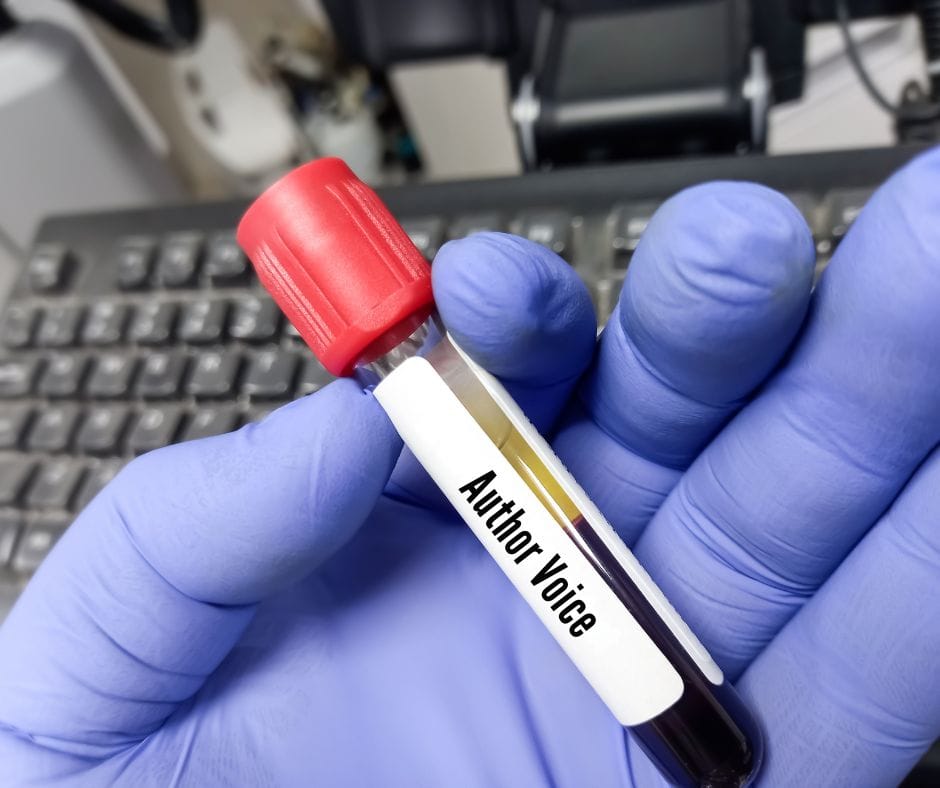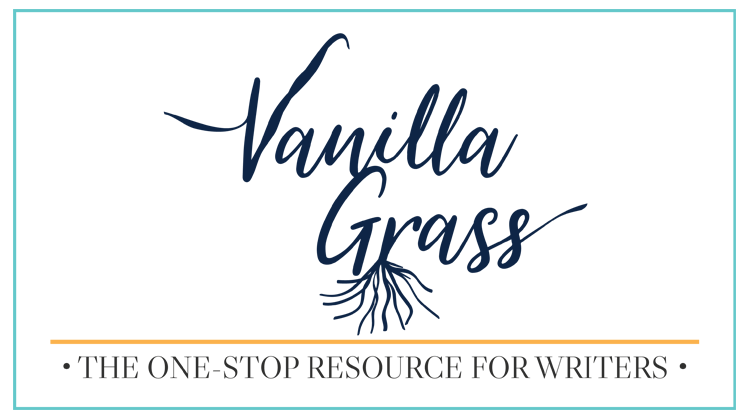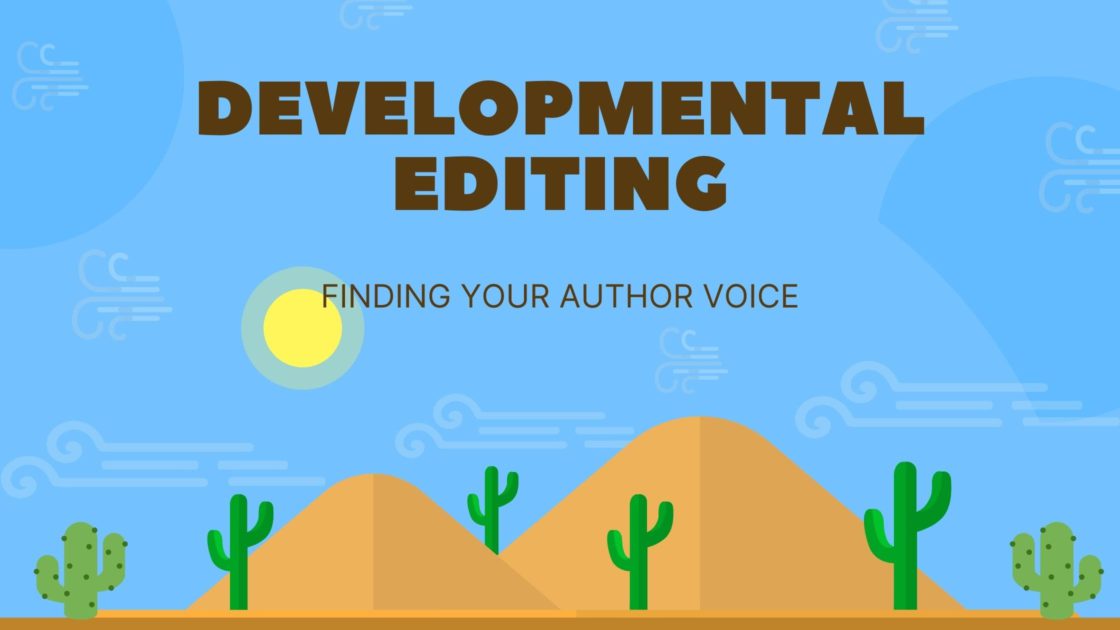Developmental Editing time again with a focus on the author’s voice!
We’re almost done with this little mini-series. Woo. I hope it’s been helpful and that you’ve learned a few things. So far we’ve gone over bones (theme), character development (ligaments), and muscles (scenes). Now we just need to give the body of our story some blood to help everything function and some skin so it’s less hideous to look at.
So what is the blood of a story?

I like to think of it as the author’s voice. This is something that’s often overlooked but super important.
Now, you may be asking “If I’m the author and I wrote the story, isn’t it all in my voice?”
Why yes, yes it is. But that doesn’t mean you’ve created a consistent author voice. And that’s what we’re looking at today. Because your voice is what is going to draw the reader’s in and make them your fans. Authors who write in lots of genres and still maintain an avid readers list are pros at this. They know where they shine, what they’re good at, and what they don’t do so well.
So…
What is the author’s voice?
Simply put, the author’s voice, or author voice, is the way you tell your story. It’s a mixture of how you write your sentences, convey your themes, evolve your characters, and develop your world. It’s what make people hear a passage and go “Ah, I know that voice!” and (hopefully) feel happy about it.
Author voice is your presence on the page.

It can also be tricky to quantify and develop. So, first, let me differentiate author voice from character voice. As we discussed a little with character development, each of the protagonists and antagonists in your book should be their own people on their own arc. They should also have their own voices, or the way they sound and come across on the page.
Good authors leave themselves behind and let the characters be themselves. Great authors, on the other hand, step back to give their characters room to express themselves while they referee.
That means that even through the tight POV dive into your character’s being, you’re still there pulling strings and adding your voice to the mixture.
Let’s get an example
For example, even though we might have a book with multiple povs (points of view) where the character voice changes in rotating chapters, the overall style and feel of the book should be consistent. If you’d like an example, I’m always going to point to Amy Tan.
In Joy Luck Club she rotates through many povs between four mothers and their daughters. But you never feel like you’re not reading Amy Tan. Her poignancy, beautiful writing style, and metaphors let the reader know they’re always in good hands.
In the end, your voice is who you are on the written page and the way you tell a story. The more you write, the more your author voice will develop.
In the meantime, let’s look at the story you’re working on specifically and see if it jives with your best writing style.
Questions to ask to improve author’s voice in your story

- What is the tone of my story? Is it serious, funny, informative, whimsical, dark?
- Is it consistent throughout? Do I start out funny and then end up bleak? Romantic then horrific? Keep in mind your story arc. If you’re writing a tragedy, romance to horror could work. But be mindful of your reader promise. If you start your story out as a rom-com and you market it as a rom-com, the whole thing should be a… ROM COM and stay light and funny. Looking at a novel specifically, ask yourself if your tone and voice are consistent between chapters. Is one a huge up and the next jarringly serious? Is that intentional to prove a point or an oopsy?
- What are you best at writing? Are you known for your epic fantasy world-building? For your scintillating scenes? Are you capitalizing on that in your story or trying something new? Is there a way you could combine the two and remind your already-readers why they love your voice?
- Does it sound, well, like you? This one can be tricky when you have different character voices competing, but your style will always be you, and keeping that voice consistent is key. If you like Steven King’s style, that’s fine. Read his novels and learn his tricks. But don’t try to write exactly like him. Try writing sentences like he does. Then write them like you would. Compare and contrast, adjust and improve, but always keep the you. Always be improving your style, but don’t forsake yours completely for someone else’s. Your readers want you!
3 Questions you can ask while editing for author voice

Now that you have an idea of what your tone and voice sound like in your novel, what you’re good at, and what you’re trying to accomplish, what are ways we can do to identify author voice in our novel?
- Look at sentence structure. Do you have a nice variety woven through each chapter? Or is the first half of your book filled with long, intricate sentences and the second half short, quick ones?
- Look at word use and turn of phrase. Try to strike a balance, trading off your favorite words occasionally for something new without sounding like you went and looked it up in a dictionary. Talk how you talk (but maybe a little better if you’re like me
 ) so you don’t jar your readers with a fancy five-syllable word out of nowhere.
) so you don’t jar your readers with a fancy five-syllable word out of nowhere. - Get some beta reads. Sometimes your readers will catch the shift and let you know.
Conclusion

Author voice can be a tricky thing to see and get the feel for, so don’t be discouraged if you’re not quite sure what feels right or how to see your own voice. Especially, if you’re only on your first or second voice. It can take time to develop and truly come into your own.
What do you think about author voice? Do you think you’ve found yours yet? Still searching? Do you think it’s important to your brand and marketing? I’d love to hear!

